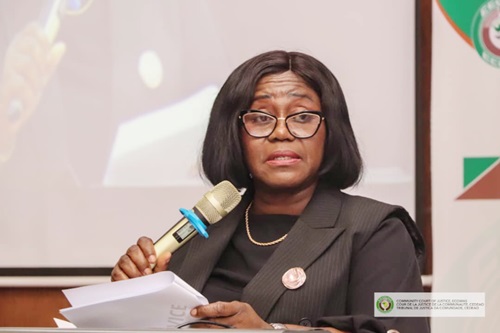Lawyers and government agents from five English-speaking countries have converged on Accra to undergo training on how to use the Electronic Case Management System (ECMS) of the ECOWAS Community Court of Justice (CCJ).
Specifically, the representatives from Ghana, Gambia, Liberia, Sierra Leone and Nigeria will be trained on how to file and serve documents electronically via the portal on both new and existing cases, track case information in real time, and manage their legal matters among others on the ECMS.
The training is the latest in a series of events planned for member states following a successful session in Lome, Togo.
ECMS
Following the COVID-19 pandemic, the ECMS was designed based on the Rules of Procedure and the Practice Directions of the ECOWAS Court to automate the CCJ's judicial processes.
It supports electronic filing of applications and other documents, electronic service, electronic management of cases and a standardised workflow.
The system is designed in the three languages of the Community (English, French, and Portuguese) and has two main modules with web interfaces; an external user portal for litigants and their lawyers and an internal interface for judges and judicial staff.
The external portal is accessible 24/7, providing a secure and private platform for lawyers and agents to register, file, and serve documents on both new and existing cases.
Opening
Opening the training in Accra last Friday, the President of the ECOWAS Community Court of Justice, Justice Edward Amoako Asante, explained that the ECMS was designed to introduce more efficiency in the way we manage and process cases at the court.
![]()
Participants
The President said this seamless access would not only expedite the judicial process but also enhance transparency and accountability, as well as reduce physical human interferences in the operations of the court.
He added that the ECMS was a testament to the court's commitment to continue modernising and streamlining its judicial processes to make the court more accessible and efficient for all parties and stakeholders.
Efficient
The Chief Justice, Gertrude Sackey Torkornoo, said the use of technology would allow court users to cut costs, be more efficient and avoid unnecessary delays in administering justice.
For her part, a Deputy Attorney-General and Deputy Minister for Justice, Diana Asonaba Dapaah, expressed Ghana’s commitment to abide by and remain committed to the values of the court and the principles of international law.

